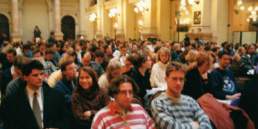Hungary will vote for a new parliament on 8th of April. One of the candidates is Roland Papp, former member of AEGEE-Budapest. Roland was part of the core team of Agora Budapest in 2012 and also part of the Eastern Partnership Project team. Now he runs for the left-liberal party Együtt. “We want more freedom in public life, we fight for human rights and for a society where different people can live together”, Roland told the Golden Times.
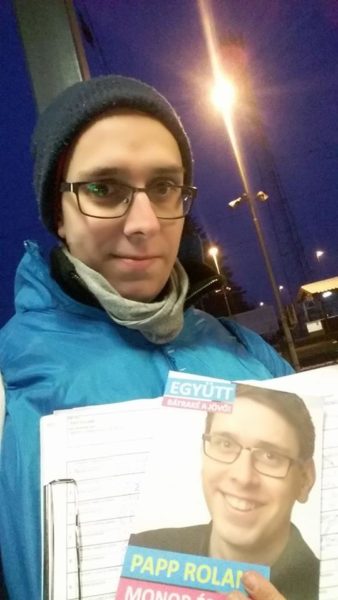 Golden Times: Roland, only very few AEGEE members become active in politics. What was your motivation?
Golden Times: Roland, only very few AEGEE members become active in politics. What was your motivation?
Roland Papp: My motivation was actually very similar for being active in AEGEE and in politics: I was active to do something useful, to fight for a better world, to be the part of change.
Golden Times: You are running for a seat in the national parliament. What did you have to do to get nominated?
Roland Papp: In the Hungarian election system you have both national lists and single members’ districts. I am running in a single member constituency where I grew up. In Hungary at the beginning of the campaign period you have to collect 500 supporting signatures from citizens living in your constituency within two weeks. So, basically in the end of February I was going to our supporters’ home, went around door to door and organised a campaign in public places to get these signatures. Unfortunately, these two weeks were the coldest weeks of this winter, so when it is minus 10 centigrade and snowing, many people do not feel like chatting about politics. Nevertheless, I collected the needed signatures, so I officially became a candidate in early March.
Golden Times: Can you tell us more about your party Együtt? Is it left, centre, right, what does it stand for?
Roland Papp: Együtt is a small and quite young party in Hungary, it is only five years old. We are left-liberals. We stand for a free and liberal democratic Hungary, we want more freedom in public life, we fight for human rights and for a society where different people can live together. But we also want to have more social democracy, because the state needs bigger intervention to fight against poverty in Hungary.
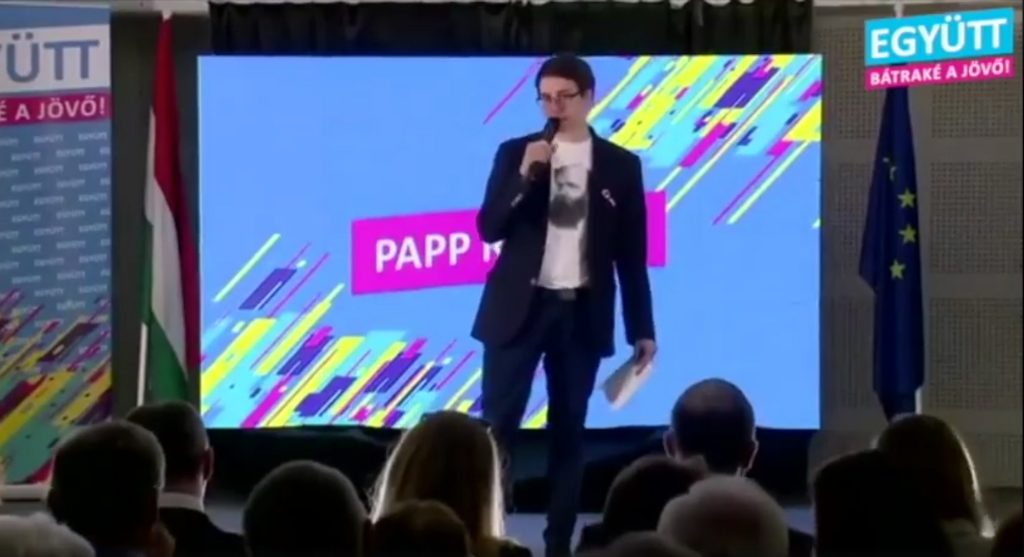
Golden Times: Your chances to actually get elected are not that high. Why doesn’t it stop you from running anyway?
Roland Papp: If people would only try to do things which are easy to achieve, nothing would change in the world. In the Hungarian election system all votes count, if the candidate does not win, his or her votes will be used in the party’s national list. But most importantly, in a country like Hungary, where democracy is not fully functioning, it is important to show an example. Quite many people are afraid to stand up for change, even if they are not satisfied with this “illiberal” democracy. So being a young candidate in a not too welcoming environment can encourage others to stand up.
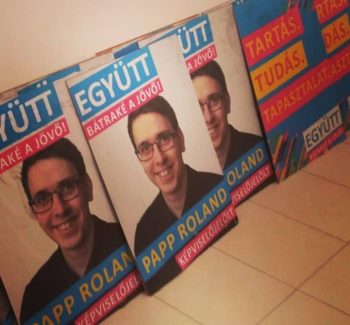 Golden Times: Viktor Orbán has been Hungary’s prime minister from 1998 to 2002 and since 2010. His party Fidesz is way ahead of all other parties in the opinion polls, despite numerous scandals and ongoing cases of corruption. How do you explain his and his party’s popularity?
Golden Times: Viktor Orbán has been Hungary’s prime minister from 1998 to 2002 and since 2010. His party Fidesz is way ahead of all other parties in the opinion polls, despite numerous scandals and ongoing cases of corruption. How do you explain his and his party’s popularity?
Roland Papp: Orbán claims he is the only person who represents “the people”. He often uses the worst fears of people and he controls basically everything now. The decades after the democratic transition in 1989/1990 were not a success story for all. However, it is clear, Orbán’s supporters are not the majority, but they are the best organised majority. Some of his actions were quite popular, but if we see the big picture, Hungary is not the success story he is trying to sell. And because of the changes in the election systems and media, as well as his control over some opposition politicians, this minority can stay in power.
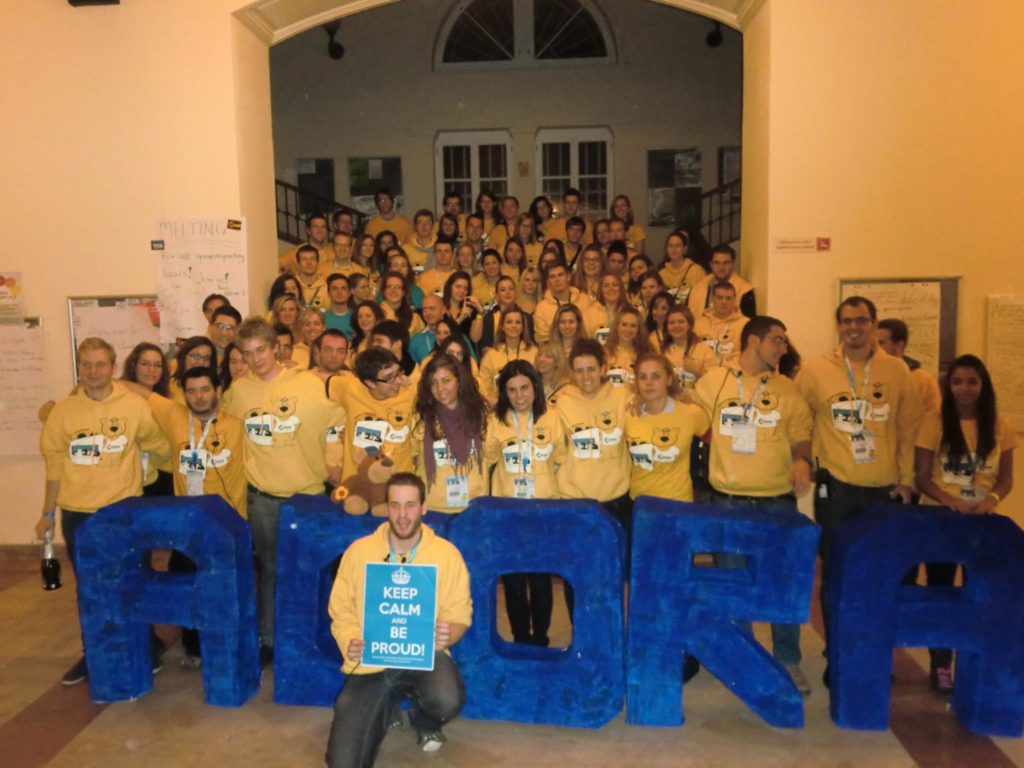
Golden Times: Orbán declared that he dislikes a liberal democracy, he got most media under control, the courts, the central bank, basically all state institutions. As you mentioned, he also changed the election law in his favour. Do Hungarian voters not care about balance of power and free democracy?
Roland Papp: Even those voters, who don’t consider these changes as something which kills our country, are aware of these issues. I am convinced that most Hungarians just do not believe that things can actually get better. Most of them have never seen a municipality which listens to them, we never experienced a transparent state. So even if you know that it would be great if public money would be used without corruption, it seems like a utopia for many people. Orbán’s supporters also don’t deny these. They sometimes say that previous left wing governments also stole public money, the national TV was also not independent, so now it is their turn. It is not just cynical, it is very harmful in my opinion.
Golden Times: In the past eight years, why hasn’t there be any left or liberal party developed as serious contender to Orbán’s Fidesz? The opposition seems quite divided. Your own party has only three seats in the parliament…
Roland Papp: The democratic opposition is quite divided, and there are quite a few politicians in the opposition who have been in power before, and many people don’t want them back either. Also, the far right party Jobbik is quite strong, around 15 to 20%. There is not many free media left, so as opposition parties it is hard to get close to Orban’s voters. No one from my party has been invited to the Hungarian National Radio for more than two years now. Orbán, however, has an interview there almost every week. So even if you have an amazing idea about education system or what to do with health care, it is hard to reach the people.
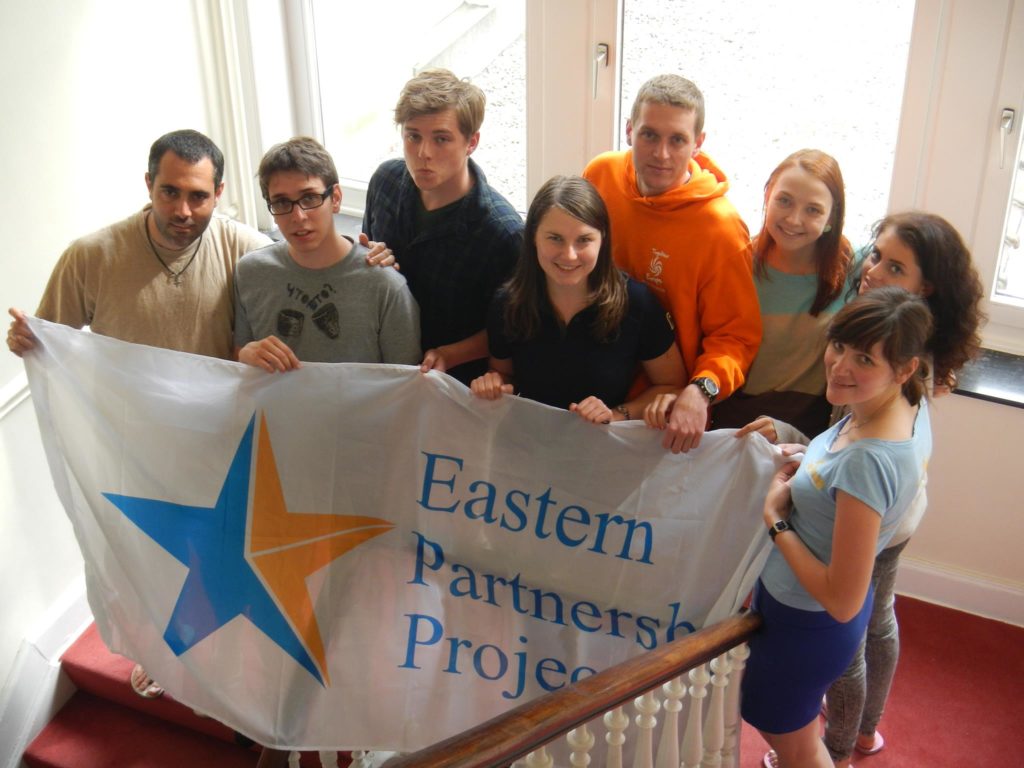
Golden Times: The recent mayor election in Hódmezövásárhely seems to scare Orbán. In this provincial town with 45,000 inhabitants all opposition parties agreed on one joint candidate. Now similar agreements are forming in other constituencies. How successful will these efforts be in diminishing Orbán’s success?
Roland Papp: It would be great, because now it seems that Orbán has roughly two million supporters, but the other six million voters are all sick and tired of his corrupt system. However, most opposition parties are not eager to risk their positions, so it is hard to say what will happen in the next two weeks before the elections. The best would be if in each constituency there would be only one candidate against Fidesz, but because of election system’s regulations, party funding and political interests, opposition politicians don’t want to step back in places, even if it means Fidesz can win again. Of course, it is not easy to agree on one candidate, because what to do with a highly antidemocratic far right party? Shall we cooperate with them in order to get rid of our current antidemocratic leaders? And what about the previously corrupt politicians? Why shall we help them to get back to the parliament?
Golden Times: Is your party also joining forces with others against Fidesz?
Roland Papp: Yes, we have stepped back in many constituencies for a candidate who has a big chance to win against Fidesz. If the governing party’s candidate has only 30% of supporters, but there are four opposition candidates with 15% support each, still Orbán’s candidate will win. But if there is only one opposition candidate, then Orbán’s 30% is not enough to win. So, we withdrew many candidates, and now we expect that other parties would do the same in other constituencies. So far it doesn’t seem possible everywhere in the country, but things can change quickly.
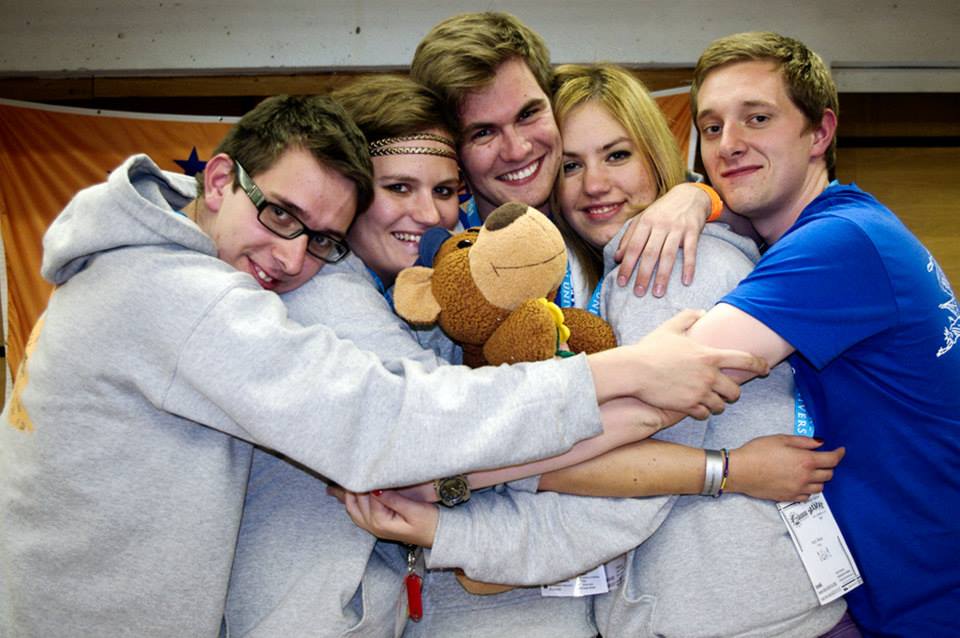
Golden Times: How do you feel when you promote your party at info stands and talk to potential voters? Is it hard to convince them?
Roland Papp: The area where I am a candidate is not far from the capital Budapest, but there are mostly villages and small towns. I don’t have to convince them that there are huge problems in Hungary. They feel every day that health care barely functions, the education system is in ruins, corruption makes it hard to do anything, and poverty affects millions of Hungarians. It is much harder to convince them to believe that they can do something about it.
Golden Times: What would you change if you became prime minister?
Roland Papp: One of the biggest problems in Hungary is that most decision are made in the top, without the inclusion people who will be affected. No one asks the stakeholders and citizens what they want. So, what would I change? Nothing without others. This country needs to be a more democratic and more transparent leadership.

Golden Times: Some words about you: where are you from, what did you study, how old are you?
Roland Papp: I will turn 28 soon. I grew up in a small suburban village of Budapest, called Mende. I went to school and then university in Budapest. During my BA years I was active in AEGEE-Budapest and also at the European level. I studied international relations, later I did my MA studies in England and in Poland. I also lived in Estonia and Belgium. So I had quite a European life so far. I moved back to Hungary eight months ago, and I am a policy analyst focusing on social policies such as housing, dealing with poverty and so on.
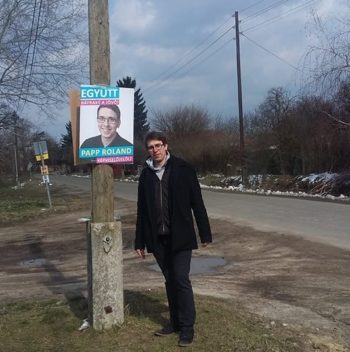 Golden Times: What are your main highlights of your AEGEE career?
Golden Times: What are your main highlights of your AEGEE career?
Roland Papp: I was one of the main organisers of Agora Budapest 2012, I was human resources coordinator, which means I was responsible for all 150 organisers. It was an amazing experience with an amazing team. Later I was vice-president of AEGEE-Budapest. I was part of many European projects, most importantly I was content manager of the Eastern Partnership Project. In total I was active for 3.5 to 4 years. I learned a lot during this period, and I have to say I still have many friends all around Europe from AEGEE.
Golden Times: You have been very active in AEGEE. What can students or other young people in your country do to make Hungary more democratic again?
Roland Papp: Most importantly, get out and vote on 8th of April. Get informed, look around, learn about the system and make an informed decision. But many people still think that being part of politics is something nasty. Decent people only complain about politics, but try to stay out of it. We need to change this attitude. You can go to protests, meet politicians and activists, ask them, help them and so on. Ask government politicians what they do, what happened with the public money and so on. Make them responsible for their acts!

